Visit Neil's personal messageboard on KRMB here

CHANGELING
by Neil Ayres
There are no sixes marking the back of my head and my tongue is wide, pink and fat, not serpentine. I do not have a lashing tail tipped with an arrowhead and I have never killed anyone. Well, not directly. Yet I recall with clarity the shrieking dissent of the Drabarni, draped in black cotton and lace, a liver-spotted hand hovering over the flames of the campfire. The old woman muttered to herself as the twigs she had scattered into the fire crackled and scorched.
�The boy is moxado.� She squawked. �He is unclean and he must go.� My mother laid a thin and shaking hand upon my shoulder. She sniffed behind me and her free hand moved to brush away the tears that streamed down her cheeks. I watched our ordinarily jovial Rom Baro twitch his full moustache in concern. As powerful as the Drabarni was, she alone did not have the authority to banish me from the Kumpan�ia. The family sent word to the others, as far afield as Dumfries and Galloway to the north and Devon to the west. A Kris was held to decide my future.
*
I met Opal in the summer of eighty-four; my life was as good as it had ever been, at least since the switch. My adopted parents were, for the time, a distant memory. I was on the road with the band. We had lived for six months out of the back of our ancient VW camper, fruit from the money of our combined purses; All for one and one for all and all that prissy bohemian bonhomie. We toured up one side of the country and down the other and slept, if not in the claustrophobic press of the van, then on some dustmite-riddled carpet worn down by an infinity of house-parties and littered still with the scent of stale crisps and fag-ends.
I had been sat atop a stile, somewhere in the finer part of Essex, probably Colchester. I played my violin in a daze with my eyes fixed on the near-clear blue sky, sullied only by wispy clouds stretched like vexed strands of cotton wool. I played a spontaneous melody; a sweeping tune punctuated with staccato attacks from my bow.
�That is a beautiful sound.� She had told me. �I had come out here to listen to the birds, but they cannot compete with your music.� Possibly I blushed.
Around Opal�s slender brown neck hung a pair of plastic binoculars. They rested against small breasts that were highlighted by her pale lilac blouse. As she spoke my gaze was automatically drawn to her perfect, full lips.
�I thought I was alone.� I responded. And then in a more civil tone, I introduced myself.
Opal: the result of a union between an ageing Irish hippy and a rebellious Punjabi hairdresser. She spoke without trace of an accent, simple English that contorted to suit her company. We spent the long summer days together, traipsing across fields and through forests whilst my bandmates holed themselves up in smoggy pubs or football-fan laden working men�s clubs.
It was at a similar club that Opal had found her summer employment. She ran the seafood trailer outside of the social club. I abandoned my life as a musician and stayed behind when the band moved on. I spent my nights with my new love, watching a portable black and white telly; the pair of us coated in the smell of fish, filling up on crabsticks and cockles. If the TV held scant promise then we would watch the kids after they grew bored with the club. The children were displaced from the opaque gloom of the club�s bowels after scuffing the baize of the pool table one too many times, or else evicted from the bar, as they grew too rowdy in the tedium. I learned a lot from watching those kids, treating them to free portions of king prawns.
If the children were dragged away by their drunken mothers, Opal and I would amuse ourselves with word-games.
�Arnold, Alice.� �Andrew. Abigail.� �Anthony, Audrey.� �Aubrey! Anna.� �Arthur and Anastasia.�
Sometimes we could rally like this for hours, or at least it seems so with the taint of nostalgia. �Adam.� I said with a smile one night, picking ochre-tinged eggs from beneath my fingernails.
*
Not even my father spoke up for me. From what I remember, the only one to support my mother at the Kris had been my uncle, my father�s brother. But his arguments came to nothing. I recall little of the Kris itself, save the chattering of the younger men, who were eager to prove themselves at such an ostentatious event. Their words were swallowed up by the considered silence of the elders and even the raucous children fell quiet. A silent time in which I found sleep.
*
The lengthy summer finally gave out on us, and Opal decided - with no little encouragement from myself - to drop out of college. With the money she had saved from working at the seafood shack we set out, heading initially southwest, from north Essex down to the coast, keen to avoid the open wound of land that is London.
I stole milk-bottles and cheeses from doorsteps for us, and took eggs from the honesty boxes left at the roadsides by trusting farmers. One night, much to Opal�s objection, I spitted and roasted a hedgehog over our open fire, but the flavour could not match the intensity of memory. Instead the thing tasted like overcooked and tough-fleshed chicken.
By the time the shop-fronts were decked with Christmas decorations we were in Bath. I wore a mean-looking hat half-inched from a scarecrow to cover my head, freshly shorn of hair. Opal�s lush black locks had turned felty from neglect, although they were not matted as she insisted on brushing her tresses thoroughly at least twice a day.
With the chill weather we took to staying in youth hostels if we were unable to find a disused barn or condemned cottage. Life had grown harsher with the death of summer; the fruits of the forest had withered away and the denizens of the countryside kept more to their earthy lairs and hidey-holes.
We lay together one night, Opal and I, our bodies criss-crossed beneath a crisp black sky and she pointed out the Morning Star to me.
�That�s Venus.� She told me. �Where the Valkyries come from.� Funny thing is, though I nodded my understanding I never did believe her.
*
I remember more of the switch than the actual ritual itself, I suppose because it was more out of the ordinary. At the ritual I recollect the bossy old Drabarni being somewhat more animated than usual. And my mother crying and our ugly wire-haired lurcher becoming increasingly anxious as her sobs grew louder. I however was hypnotised by the black-clad seeress� manic chanting.
The Rom Baro sat with my father on the steps leading into our vurdon, the two of them trying their best to ignore the oblique ceremony being performed by the fireside, perhaps discussing the details of the swap. My uncle had left, probably to go poaching with his own son, disgusted by the lack of objection concerning my forthcoming exile.
*
As the weeks wore on and the days grew short I could easily sense Opal�s despondency towards our situation, but I made no mention of it. On the surface our lives continued as normal. When we moved on from one place to another we left behind a charred patch of soil, a couple of empty milk-bottles and the picked apart skeleton of some unlucky animal; a fox, a squirrel, sometimes even the occasional stray cat.
We bathed in the water of ice-cold streams or if these were unavailable we would wash ourselves in public toilets. We took clothes and books at night from outside the doors of charity shops and rode ticket-less by bus or train, giving false names and addresses if we were accosted by an inspector, the pair of us pretending we could not speak English and alighting the train in faked bemusement.
�I love you.� I told Opal one day. She did not answer me but continued gazing into the middle distance, seeing something that I could not. I panicked at her silence and with a tip of my hat I said:
�I am a scarecrow, I haven�t got a brain.� Follow the yellow brick road, but not all the way to the end. Opal smiled distantly, took my hand and led me behind a hedgerow where we made love.
*
A whispering sound alerted the attention of the father outside the gates of the orphanage. As we closed the gap between ourselves and the mother and her child I heard a voice I thought I placed as my uncle�s issue from the trees beyond the path. My father ran ahead and caught up with the gorgio woman and her child. I could not hear what he said to her but she made little protestation when he took the hand of her son and led him back to where I stood shivering in the chill winter air with the taciturn Rom Baro. Drizzle was slowly soaking my clothes.
By the time I heard the office door open and felt a cool gush of night air under the doorway, my father had already foisted me upon the tearful gorgio woman. She had walked me up the winding pathway that led to the entrance of the old building. Inside a stern-faced woman had taken my fingerprints using an inky blue pad and hurried me into an adjoining room, while my mother waited for her husband to arrive in order to complete the final pieces of paperwork.
�Pull yourself together woman.� My father had urged my unfamiliar escort. �I thought Catholics were born in sin. You can get absolution for this on Sunday. Your boy will be fine with us. We�re not monsters. What difference does it make? An orphanage or the open road; which one would you choose?�
As papers were shuffled and chairs were scraped next door, the window to my shadowed antechamber was slid smoothly upwards.
�Psst, chavvie, help me in, quickly, we haven�t long. Here take this.� My uncle gave me his fiddle, without a case. �Say you brought it with you from home. Don�t let the gorgio take it from you, not even the children. Remember my boy, they can get to you here and here,� My uncle prodded my chest and then my stomach. �But never in here.� And with this he tapped me on the head with a heavy knuckle. �You are a thing of the drom lad. You are Rom, always, in here. But you must never let them know. Be cunning.� He tapped my forehead once more for added emphasis. �The raklo taken by your father and the Rom Baro will never be as you are. It is a thing of the blood.� And with that rather melodramatic statement, my uncle was gone, out the window. �Kushti Ratti.� He whispered dropping to the floor and running swiftly away, his chest kept low to the floor.
�Goodnight.� I answered.
*
I did not dare tell Opal about the circumstances surrounding my foster mother�s accident, though I had never shied from revealing the details to anyone before. I imagine that I did not tell her because she was one of the few individuals who might not think my beliefs mere whimsy.
I had been at the orphanage for over a year. My fiddle had been confiscated from me less than a week after my arrival. The place was Hell on Earth. If I were a religious man I would not be afraid of dying and being sucked into Lucifer�s realm less it were a detailed re-imagining of my time at the orphanage.
I had been in my foster home for little over a month. The children I shared the place with were tolerable enough and I actually grew to be friends with my foster carers� own son. He and I and my newly burdened mother figure were walking in town on some unnamed errand, when we passed a music shop. In the window was a polished violin, a cheap refurbished trade affair made from spruce wood and willow. I begged to go in and look at the thing but my chaperone was in a hurry and on we went.
I stole away in the night, out of my bedroom window once my roommate was safely snoring. The lock on the door of the music store was easy enough, for a thief as practised as I, and I was in. My grubby mitts upon the fragile instrument, already itching to drag the curved bow across its taut catgut strings.
The violin was reported stolen in the local press and was easily enough discovered beneath my bed when the room was cleaned. I had, however, refreshed my fingers and my mind and after so much time had passed, once more began to yearn for the freedom I had known before arriving at the orphanage.
My foster mother attempted to get me to apologise to the owner of the music shop but I refused.
�Why should I?� I contested.
�Because it was not yours to take, Adam.� She said. Adam was the name of the raklo whose place I had stolen at the orphanage. My carer�s logic was lost on me and failed to make sense.
�Who are you to tell me what to take?� I yelled, falling back on a common ploy used by the other boys from the children�s home. �You�re not my mother. I wish you were dead!� I fixed her with a vicious stare. But I did not really mean my harsh words. At the moment all I wanted was for her to hurt a little, to have something taken away from her as I had. And so it was. My foster mother left me in the garden; exasperated with our argument she stormed out across the road, failing to see the wavering moped that tore her from her feet. Tore her from her feet for good, so that she would never walk again.
*
We spent Christmas day in Opal�s house. She knew that her parents always travelled to Ireland for the holiday season and had confirmed this through a brief telephone conversation with her mum. We caught a train from Newquay straight to London on Christmas Eve and caught the last coach to Chelmsford, walking the final couple of miles along a frosty canal-side.
For Christmas dinner we feasted finer than we had for over half a year and I believe that it was this taste of luxury that ultimately tempted Opal away from her life on the road. We both knew (I more than anyone,) that there was no way to have the best of both worlds.
We dined on boiled potatoes and cold meats from the fridge and Opal got drunk on a six-pack of Guinness and half a bottle of her father�s whisky. She gave me a daisy chain as a gift and I offered her the hastily scrawled lyrics to a song written for her while she had dozed on the train. �It�s not nicked.� I assured her, tentatively, passing her my crumpled sheet of paper. �Merry Christmas.�
�Because you really believe in all this claptrap.� She mocked me. �Peace on Earth, goodwill to all men.�
�Why not?� I answered vehemently.
��Cause it�s not you, Adam. It�s just not you.� I considered a piece of honey-roasted ham.
�People can change.� I said, eventually.
�I�m tired. I�m going to bed.� Opal kissed me on my cheek and ascended the stairs of her house, her home. I unplugged the lights of the tree and drenched the room in darkness. The smell of salt beef and turkey roast was on my hands. I rinsed them under the cold tap in the kitchen and dried myself on a coarse tea towel. Opal�s bedside lamp was extinguished and the entire house was pitched in black. I waited for my eyes to adjust to the lack of light before searching for my knapsack in the hallway.
*
My foster father could barely cope with his own kids after his wife�s accident so all of the foster children were returned to whence they came. My selfish curse had backfired; I had sentenced myself to another indeterminable stint in Hell.
After several failed escape attempts I was sent to a home for older boys where the security was tighter but the staff slightly more amiable than they had been at the orphanage. Being the youngest at the new home, after the obligatory pushing and shoving, both mental and physical, with a gruff attitude and the weight of experience I luckily enamoured myself to some of the rougher kids. I kept my head down for the next couple of years until another gypsy boy arrived at the home, taken from his parents by well-meaning social workers after the council had officially closed down his campsite. His father had been too ill to move on with the rest of the Kumpa�nia and had been admitted to a local hospice. His mother lost her husband and her son all in the same week.
The boys I had come to regard as my friends were like a pack of rabid dogs. As soon as the wardens� backs were turned they were upon the lad. He was older than I was and much bigger, and he fought his ground well enough but he was hopelessly outnumbered.
�Pikey scum!� They jeered, kicking him amongst the steel-trimmed cots that lined our dormitory, giving it the feel of an army barracks. �Dirty gypo, get your filthy paws off my bedcovers you little tramp.� I could not watch, but nor could I aid my brethren. I wished with all my heart that those gorgio boys burned in Hell, as they so deserved.
The Romany boy was admitted to the sickbay a few days after his arrival and in time, before he was fully healed, men from his family came to the offices of the home and laid claim to him.
The night of his release I too sought freedom once more and it was from the other side of the home�s walls that I watched polluted flames lick the sky from within the old mansion. I made my way down a twisting bridleway as the too-late sounds of the sirens from fire engines and ambulances sang to me.
*
There is nothing more powerful in this world than love. Bitterness gives way to compassion and I slip out the door. Opal will not be surprised to find me gone when she awakes. To spend my life with my eyes closed would be a crime, so I must move on. I take a bottle of cold milk and a couple of eggs from the fridge and swaddle my looted produce in kitchen towel.
I take no heed of the door that clicks shut behind me, as it is a portal that frees rather than restricts. I stalk smoothly up the pathway, avoiding the cracks in the cracked golden crazing paving. After all, it is not the destination at the end of the road that is important, but the journey itself.
� Neil Ayres
Reproduced with permission
SELECTED LINKS:
SHOWCASE @laurahird.com
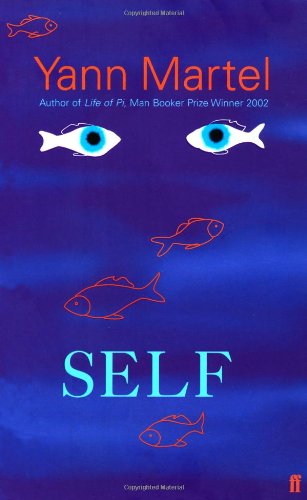 'SELF' by Yann Martel
'SELF' by Yann Martel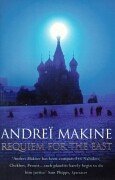 'REQUIEM FOR THE EAST' by Andrei Makine
'REQUIEM FOR THE EAST' by Andrei Makine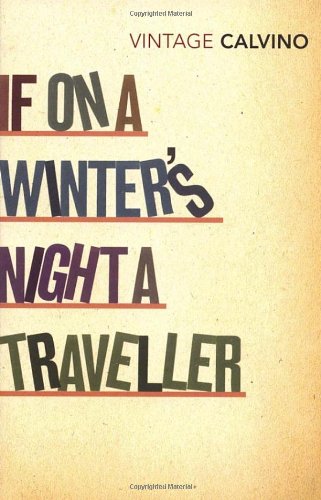 'IF ON A WINTER�S NIGHT A TRAVELLER' by Italo Calvino
'IF ON A WINTER�S NIGHT A TRAVELLER' by Italo Calvino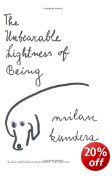 'THE UNBEARABLE LIGHTNESS OF BEING' by Milan Kundera
'THE UNBEARABLE LIGHTNESS OF BEING' by Milan Kundera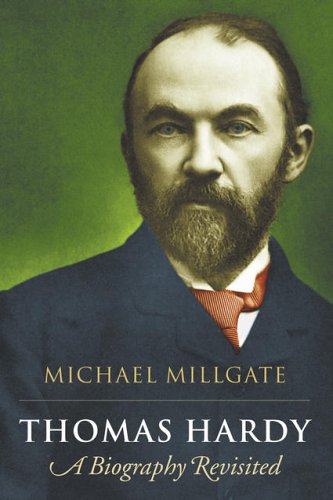 THOMAS HARDY
THOMAS HARDY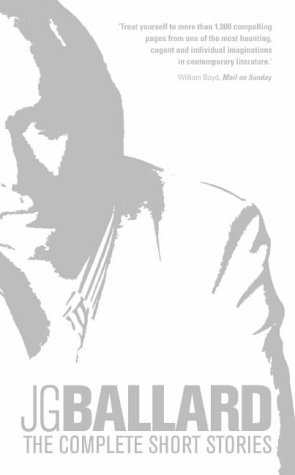 J.G. BALLARD
J.G. BALLARD JOYCE CAROL OATES
JOYCE CAROL OATES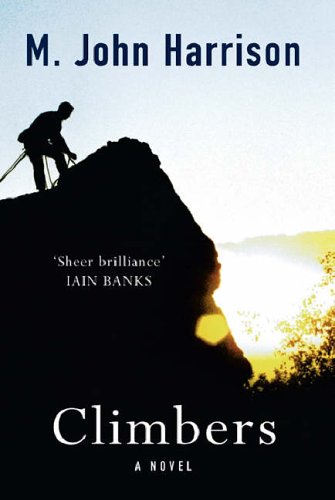 M. JOHN HARRISON
M. JOHN HARRISON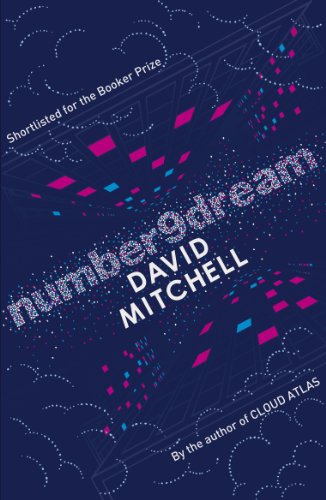 DAVID MITCHELL
DAVID MITCHELL
